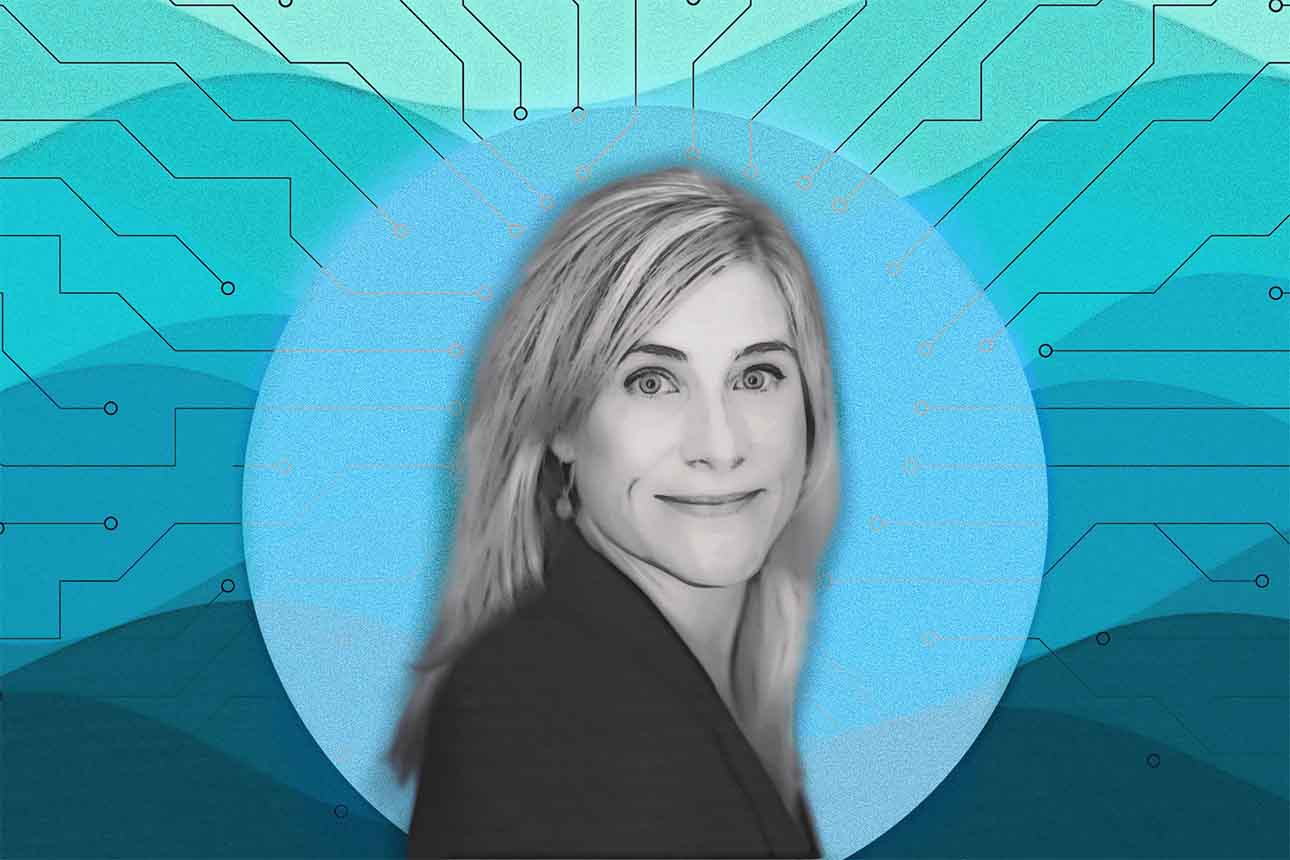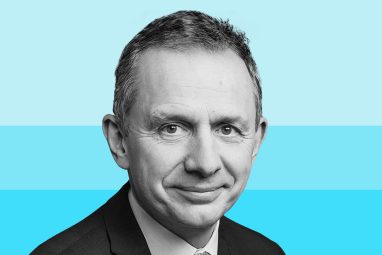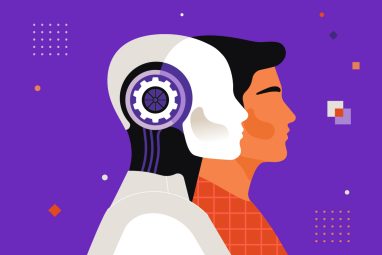AI is a Powerful Assistant, and the Potential is Limitless: M42’s Amy Clare Lehoczky
When individuals trust that a company is using their data responsibly, they are willing to share more data, enabling the company to increase its customer engagement.
Topics
SPONSORED CONTENT
News
- Identity-based Attacks Account for 60% of Leading Cyber Threats, Report Finds
- CERN and Pure Storage Partner to Power Data Innovation in High-Energy Physics
- CyberArk Launches New Machine Identity Security Platform to Protect Cloud Workloads
- Why Cloud Security Is Breaking — And How Leaders Can Fix It
- IBM z17 Mainframe to Power AI Adoption at Scale
- Global GenAI Spending to Hit $644 Billion by 2025, Gartner Projects

[Image source: M42/Anvita Gupta/MITSMR Middle East]
In the past couple of decades, floods, droughts, and extreme heat have disrupted ecosystems and negatively impacted human health. But amid these crises, leveraging the power of data, technology, and innovation, digital health emerges as a beacon of hope, given its ability to provide accessible, cost-effective healthcare services and address healthcare challenges.
In fact, the synergy between health, technology, and climate resilience signifies promising opportunities.
Talking about the environmental impact of the healthcare sector in an interview with MIT SMR Middle East, Amy Clare Lehoczky, Director of Environmental, Social and Governance at M42, says “The healthcare sector would be the fifth-largest emitter globally if viewed as a country. These statistics emphasize the urgent need to alter our approach, reducing our impact on planetary health for the benefit of human well-being.”
Explaining how emerging technologies like AI and machine learning can change health outcomes and help to reduce carbon footprints, Lehoczky says, “Deploying generative AI and predictive modeling on a global scale will enhance our understanding of human and planetary health changes, leading to informed decisions that positively impact society.”
Excerpts from the edited interview:
Is it time to treat climate change as a serious health hazard?
Absolutely. We must pay close attention to the stark statistics that underscore how our changing planet profoundly affects human health. For the first time in history, our children are projected to have a lower quality of life due to our current planetary practices. Shockingly, the World Health Organization reports over 13 million deaths annually from climate-induced health issues. Equally alarming is that the healthcare sector would be the fifth-largest emitter globally if viewed as a country. These statistics emphasize the urgent need to alter our approach, reducing our impact on planetary health for the benefit of human well-being.
What are the healthcare sector’s environmental impacts?
The healthcare sector, particularly hospitals, significantly contributes to environmental issues with their high energy intensity, consuming two to three times more energy than office buildings. This substantial carbon footprint and the growing pressure on the industry necessitate a shift towards sustainability. Moreover, considering the critical shortage of healthcare practitioners and the vulnerability of certain populations to climate change, we must explore preventative care solutions and leverage technology to address these challenges.
How can carbon footprints in health systems be reduced, and how can health technology be linked to healthcare?
M42 has a two-fold action plan that includes decarbonizing our facilities and focusing on preventative health solutions, reducing the time a person is a patient. Fewer patients mean fewer emissions.
AI predictive modeling will reduce demand and offer precise and proactive care.
Initiatives like the Emirati Genome Program (EGP), facilitated by M42, utilize genetic information to identify predispositions and enable lifestyle management. The EGP offers personalized insights to individuals and harnesses extensive data to revolutionize the healthcare system in the UAE, ensuring its future resilience. EGP aspires to become the most comprehensive genome sequencing initiative, facilitating the implementation of personalized precision medicine.
Technologies like M42’s open-access medical LLM and Med42 facilitate preventative care by allowing individuals to seek advice without going to a hospital. Additionally, environmental genomics programs gather data to understand how changing natural systems impact human health, enabling proactive measures and healthcare services.
We are engaged in several data-driven projects that help anticipate health risks before they occur, such as wastewater monitoring enabled through the OceanX and Water Lab project and the health analysis capacity afforded by the Med42 generative artificial intelligence tool.
Med42 delivers high-quality responses to various medical inquiries, incorporating vast amounts of datasets, whether short and straightforward or long and complex, that might involve personal reports to ensure tailored responses for each individual.
In rigorous testing, Med42 has demonstrated its superiority by outperforming larger closed models like ChatGPT 3.5. Notably, it achieved an impressive 72% score in a zero-shot evaluation of the United States Medical Licensing Examination (USMLE) Sample Exam questions.
Beyond its remarkable performance, this open-access GenAI model can revolutionize clinical decision-making and open doors to access synthesized medical knowledge for healthcare professionals, patients, medical researchers, and regulatory authorities worldwide.
It aims to democratize innovation in the field of healthcare, making advanced medical insights more widely accessible and available to all.
How is M42 contributing to the intersection of health, technology, and the environment in healthcare?
M42 is making significant strides in two key areas. Firstly, through preventative care, by leveraging technology to initially keep individuals out of the healthcare system. M42’s Omics Center of Excellence is one of the largest omics research facilities in the world, with a specific focus on generating advanced genomics knowledge required for personalized precision care and preventive health solutions.
Secondly, we’re addressing our carbon footprint by committing to the UAE’s net zero goal by 2050. As part of this journey, M42 is developing a comprehensive greenhouse gas inventory and transition plan to reduce our environmental impact strategically. M42, as Principal Health Partner for COP28, led collaborative efforts to reduce the industry’s carbon footprint by taking a holistic and preventative view of health. We’re developing a framework and charting a plan towards net zero, aligning on standards and benchmarking to reduce environmental impact strategically.
M42 is also keen to promote a shift towards health. This involves a movement away from healthcare for treating illnesses to a focus on overall well-being, including the health of the planet as a whole.
The traditional approach to healthcare is in dire need of transformation, driven by several critical factors. The vision is to co-design the future of sustainable health enabled by technology. Focusing on a holistic approach that encompasses health, not just healthcare, people, patients, and prevention, not just cure.
Healthcare costs are surging globally, with the UAE’s total health expenditure expected to reach $30 billion by 2027. Concurrently, the global population is growing and aging, escalating the demand for healthcare services. The WHO projects a substantial shortfall of ten million healthcare workers by 2030, compounding the industry’s challenges. Moreover, over half of the world’s population still lacks access to essential health services.
Our company is actively developing a Transition Framework to achieve net-zero emissions. While certain assets within M42’s portfolio, like Diaverum – the world’s third-largest dialysis provider, have made strides in adopting advanced ESG strategies, the company recognizes the need for a unified ESG strategy and a governance structure.
Within the overarching ESG framework, M42’s key focus areas encompass a wide spectrum, from achieving net-zero emissions and enhancing climate resilience to optimizing resource efficiency, managing waste responsibly, promoting inclusive health, engaging with communities, prioritizing team member well-being, fostering diversity, emphasizing governance, upholding ethical AI practices, ensuring data security and practicing responsible procurement. Through these comprehensive efforts, we’re taking significant strides toward a more sustainable and responsible healthcare and environmental stewardship approach.
How do emerging technologies like AI and machine learning change health outcomes?
Technologies like AI predictive modeling, telemedicine, and solutions like Med42 are revolutionizing healthcare outcomes. By gathering extensive information through wearables and other devices, individuals can tailor their medical approaches to avoid unnecessary visits to healthcare facilities. M42 is leveraging cutting-edge technologies toward its goals, including AI, genomics, and robotic surgeries.
Can the Middle East region look forward to advancements in generative AI for drug discovery and personalized medicine?
Absolutely. The global demand for healthcare facilities surpasses the current supply of practitioners. Deploying generative AI and predictive modeling on a global scale will enhance our understanding of human and planetary health changes, leading to informed decisions that positively impact society.
What could be accelerating or hindering the adoption of Generative AI?
Accelerating the adoption of generative AI requires a deeper understanding of its societal benefits and dispelling misconceptions surrounding its use. AI is an amazing assistant, and the potential is limitless. Hindrances often stem from misalignments and misunderstandings about AI’s potential. By unpacking the interlinked nature between planet health and human health, we can pave the way for the adoption of transformative technologies that shape the future of health.
Keen to know how emerging technologies will impact your industry? MIT SMR Middle East will be hosting the second edition of NextTech Summit.





